It always feels like the trends that define each year in music are fairly unignorable six months in—in the case of 2024, double albums becoming the new single album. Or albums getting quote-unquote reissued the Monday after they were initially released with one new song tacked on at the end. Or that single you just released finding its way into the massive-and-ever-growing dark cloud that is AI. Or that being that me espresso.
Yet one thing remains constant: It’s always very cool hearing roughly 30 minutes to an hour (and, sure, in some special cases two hours) of good music that was tracked by humans as if to be listened to consecutively and in one sitting. It makes sense that for us, people who really like songs, the architecture of 12 (give or take) of them revolving around fairly similar lyrical and instrumental motifs would really do it for us.
Before Sabrina Carpenter’s digital clone Terminators us all, dive into our picks for the 25 best albums of the year so far below.
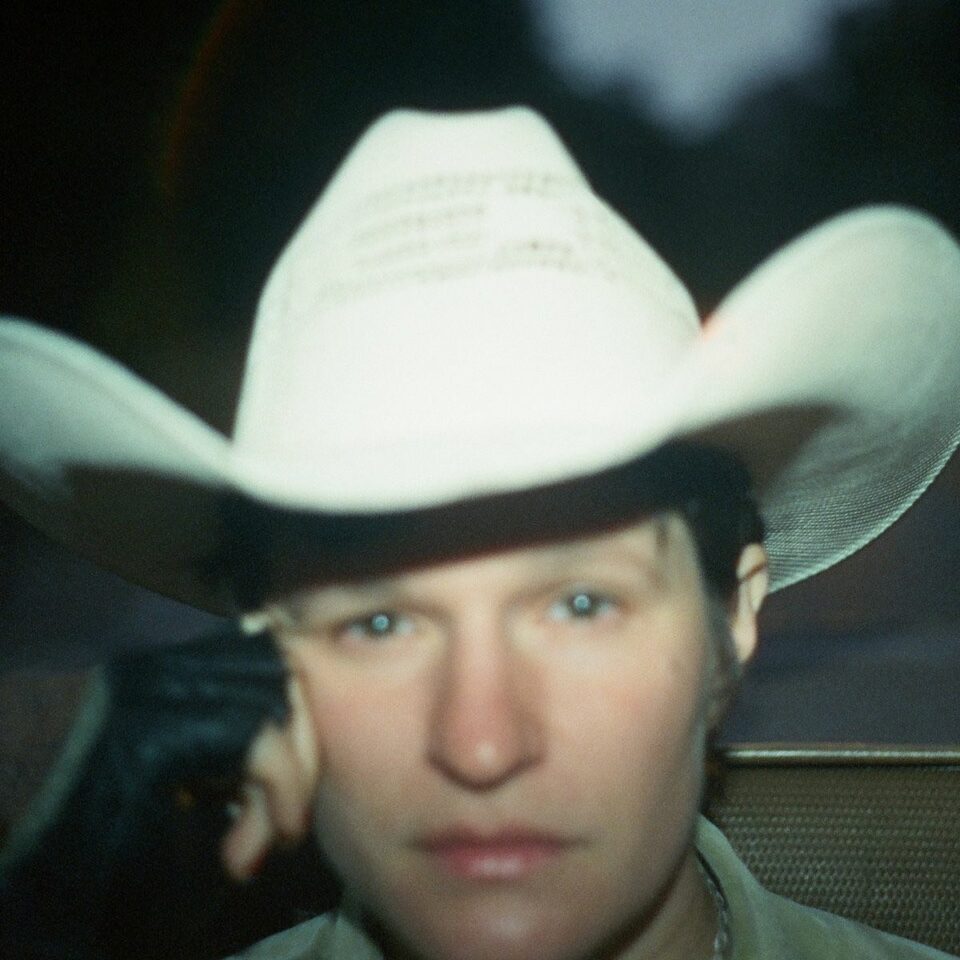
Adrianne Lenker, Bright Future
The myth of Adrianne Lenker has never been a straightforward one. As both a solo artist and primary songwriter for Big Thief, her music can oftentimes feel impenetrable, favoring winding narratives and allusive meaning over anything concrete, and Bright Future is no different. This a record of unhurried charm—whether it’s in the wide-eyed pathos of opener “Real House,” the lilting harmonies of “No Machine,” or the ramshackle guitars on the breathtaking “Free Treasure,” Lenker is tweaking, ever-so-slightly, the framework of her primary band to incredible results.
A driving force in this transformation is her incredible backing band on this album, which includes Twain’s Mat Davidson, Swedish multi-instrumentalist Josefin Runsteen, and songwriter Nick Hakim, all of whom bring their unique sensibilities to what is ultimately less a solo album than a different sort of collaboration for Lenker. This is most evident on fan-favorite “Vampire Empire,” a song Lenker released last year with Big Thief, but which is given new life here as a kind of rickety backyard ditty. But Bright Future is at its best when it embraces the cosmic poetry and unabashed vulnerability of its creator. Even the record's sillier moments (looking at you, “Evol”) are held together by an artist who’s clearly unafraid to put herself out there again and again, a reminder of how rare a talent and personality Lenker has become over the last decade. — Sean Fennell
Read our review of Bright Future here.
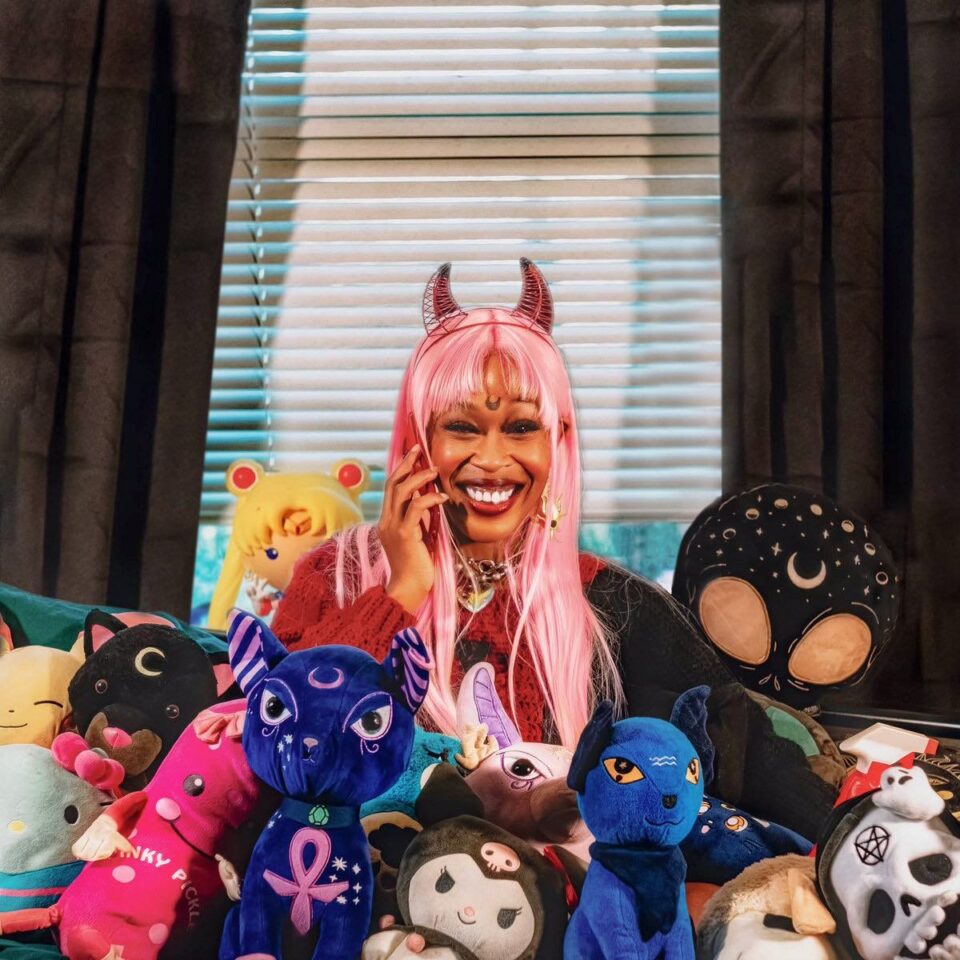
bbymutha, sleep paralysis
At some point, the artist born Brittnee Moore changed her rap moniker from bbymutha to BIGMUTHA without fully committing to it (I guess it’s yet another line in the sand between those of us who use Spotify and those who pay for our music). While the rational editor in me can be frustrated with the vagueness of this inconsistency, I also can’t deny how apt it is for an artist who embraces both the nurturing and protective instincts of motherhood in the lyrics of her new album as well as the horrifically violent threats that are generally more commonly found within mainstream rap—occasionally even in the same bar.
sleep paralysis, after all, is bbymutha’s ode to motherhood, approaching the topic both from the perspective of childhood (the title references Moore’s experiences first suffering the affliction when she was a kid) and as a mother (“Me and my kids gon’ jump you”). The LP doesn’t just represent a new direction in her music, it represents two—much of the first half experiments with breakbeats and outsider electronics while the latter half pivots to hardcore Southern hip-hop and intense horrorcore, with the best tracks managing to blur the line between these two poles. It might’ve been hard to believe before it was released that an album that opens with the sounds of gunshots and threatening lyrics about taking a dump ends with something as instrumentally playful, lyrically vulnerable, and even allegorically theological as “go!,” but sleep paralysis succeeds in nurturing a certain duality bbymutha’s been searching for all along. — Mike LeSuer
Read our feature with bbymutha here.

Beth Gibbons, Lives Outgrown
Like My Bloody Valentine’s Loveless and Roni Size’s New Forms, Portishead and their enervating vocal centerpiece, Beth Gibbons, created their own sorrow-filled, sinister wall-of-sound genre with the birth of trip-hop and the spooky-beyond-compare Dummy in 1994. Having nothing to do (as far as I know) with the celebration of that album’s 30th anniversary this year, Gibbons has morphed from that vibe into her own unique artform—a weary-but-fresh and tantalizingly atmospheric brand of subtly dramatic muzak that breathes deep much of the same rarified air as Portishead without being too tied up in moody electronica.
Start with “Floating on a Moment” and the vocalist’s sloe-gin take on growing up and growing old (“All we have is there, here, and now,” Gibbons sings). With the track’s roomy ambience of pedal steel guitars, hammered-upon dulcimer, and simmering Hammond organ hum, “Floating” could pass for an update on Fairport Convention’s Lief & Liege with its modern sounds in country music. Certainly the whispery “Oceans” and the minimalist classicism of “Tell Me Who You Are Today” could’ve formed a blueprint for Dummy 2 if she’d so desired. But Gibbons skips over nostalgia (while sticking to the lyrical subject matter of age and melancholia about time passing) on new selections such as the baroque “Lost Changes,” the dissonant strains of “Burden of Life,” and the tilt-a-whirl crunch of “Rewind.” We’ll see what comes up through the rest of 2024, but I’m looking to Lives Outgrown to stick hard to the year’s top releases. — A.D. Amorosi
Read our review of Lives Outgrown here.

Billie Eilish, Hit Me Hard and Soft
It’s a somewhat unconventional approach these days to not drop a single before releasing an album, but it speaks lengths as to the intention behind Billie Eilish’s third album. Hit Me Hard and Soft is the pop star’s most reflective record to date, as she ponders her own needs and the public’s perception as to who Billie Eilish is. “Lunch” is a devilishly flirtatious example of queer desire, as the singer declares, “It’s a craving, not a crush.” The album’s most danceable earworm, it revolves around slick guitar riffs that are flung at the listener alongside breathy, punctuated drumming.
As a whole, Hit Me Hard and Soft feels completely engulfing. Within this submergence, Eilish is washing away the previous versions of herself that we’ve become accustomed to and thinking about the paths she may take next. There’s a deluge of beautiful melodies to be found throughout, from the delicate and intimate “Birds of a Feather” to “The Greatest,” which builds to an expansive and all-encompassing crescendo of soaring strings and vocals. There’s room for the darker elements we’ve seen previously in her discography, too, especially in the second half of the album, with “L’amour de ma vie” signaling a switch into murkier waters. Eilish and sibling collaborator FINNEAS have created an impressively understated record that will satisfyingly unravel itself to you the more you listen. It’s the product of an artist completely confident in her vision, as Eilish looks to the future on her own terms rather than those set for her. — Matty Pywell
Read our review of Hit Me Hard and Soft here.
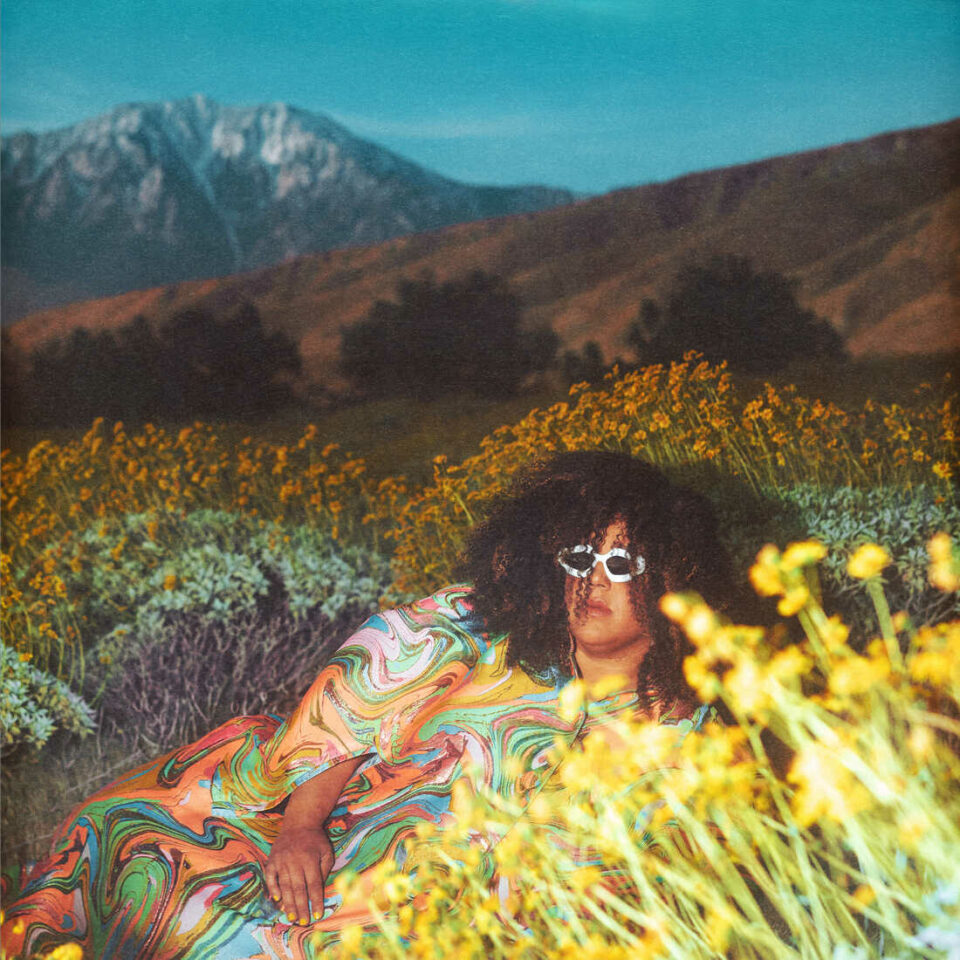
Brittany Howard, What Now
Alabama Shakes’ Brittany Howard operates within a quicksilver musical atmosphere on What Now. She manages to extend the efforts of her genre-melting solo debut, Jaime, with the result being a warm and smoky cocktail of blues, rock, and R&B. Nightclub glimmer-and-shimmy jams (“What Now”) stand alongside ruminative Steve Wonder/Essie Wright ballads (“To Be Still”), jazz strolls (“Samson” and “Every Color in Blue”), and psychedelic dance kaleidoscopes (“Prove It to You”). The 12-track album also doesn’t forget to find the fun, as Prince-esque R&B vampiness pops up on the searing “Patience” and “Power to Undo.” Both tracks light a fuse and don’t let up on the fireworks until the end.
Much has been said about Howard’s incisive guitar solos, but her vocals have improved since her Alabama Shakes days as well. What Now’s variety is its greatest strength as it helps the songwriter shine a light of empowerment on disempowered people finding themselves at a crossroads. It’s a soulful album with real meat on its bone and a fitting complement to the equally experimental Jaime. Neither album wastes any time showcasing how powerful Howard has become as a musician, lyricist, and studio collaborator. But What Now looks forward with a blazing trail hopping between styles as Howard continues to set a strong example of how to best transmogrify past influences to set up a singular singer-songwriter style that can’t be easily replicated. — Kyle Lemmon
Read our review of What Now here.

Chelsea Wolfe, She Reaches Out to She Reaches Out to She
Chelsea Wolfe has been a scene staple of all forms of gothic music for nearly two decades now, but her latest head-turn of an album She Reaches Out to She Reaches Out to She is as serpentine as its mantra-like title. Coming off her work with composer Tyler Bates for the original score to the 2022 Ti West slasher X and a collaborative LP with metalcore legends Converge, Wolfe continues to evolve from her early neo-folk days in the mid-2000s into heavier industrial and darkwave sounds after 2015’s Abyss, 2017’s Hiss Spun, and 2019’s Birth of Violence. As her recent music started to climb into the Billboard charts for the first time in her career, Wolfe kept the alluring and suffocating atmosphere as taut as the thrilling horror films she’s come to score.
The allure of She Reaches Out is in how it captures our liminal moments where we wrestle with self-reflection and self-evolution after pivotal life events. Wolfe depicts all 10 dark tales with a shapeshifting beauty and menace. Opener “Whispers in the Echo Chamber” starts with lyrics about rebuilding yourself through pain as Wolfe’s vocals rotate in a vortex created by producer Dave Sitek’s modular wall: “Bathing in the blood of who I used to be,” she sings. The shadowplay continues with “The Liminal” and “Eyes Like Nightshade,” the latter paying tribute to Wolfe’s favorite scene from Céline Sciamma’s Portrait of a Lady on Fire in which two lovers try hallucinogenic flying ointment and end up with belladonna eyes. Likewise, Wolfe’s eyes continue dilating as she reaches out further into the world of moonlit music. — Kyle Lemmon
Read Wolfe’s track-by-track breakdown of She Reaches Out to She Reaches Out to She here.

Cindy Lee, Diamond Jubilee
A primer on the Diamond Jubilee phenomenon for the uninitiated: Cindy Lee is an alter ego of sorts for Patrick Flegel, who once wrote songs and played guitar in the cult Canadian post-punk band Women. That group released two very good albums of wiry, anxious, experimental guitar music, then broke up after an on-stage fist fight only for several of the band members to reassemble under the new name Preoccupations (well, after calling it something different first). At this point, Flegel dove into their Cindy Lee origin story, releasing albums of powerful pop concoctions buried beneath walls of sound and experimental collages of noise.
The Cindy Lee aesthetic is deeply informed by the life and music of Karen Carpenter. 2015’s What’s Tonight to Eternity is the closest hint Flegel offered as to where they would head with Diamond Jubilee, but nothing within their discography—either with any of their bands or as a solo artist—could prepare listeners for the ecstatic brilliance of Jubilee. Released exclusively as .WAV files available via a Geocities website for a $30 suggested donation and as a two-hour YouTube video, the album’s barrier to entry was purposefully at odds with the ease and options of our streaming era. Despite this, the album became a breakthrough of sorts, thanks to the clarity and cohesion Flegel brings to this project. It’s not only one of the best albums of 2024, but a staggering mission statement from a restless pop auteur. — Will Schube

Cloud Nothings, Final Summer
Cleveland’s Cloud Nothings might label themselves as “a simple rock band” in their Bandcamp bio, but they’re anything but. The trio of guitarist/vocalist Dylan Baldi, bassist Chris Brown (not the violent one), and drummer Jason Gerycz has been coloring outside of genre lines since Cloud Nothings began as a solo project in 2009. Since then, Baldi and Gerycz have kept busy outside of their main gig as a free-jazz duo, while Baldi’s solo library includes a series of ambient instrumentals. Reuniting as Cloud Nothings for their ninth album, the trio has rarely sounded sharper, perhaps because they got the weirder stuff out of their system. Working with producer Jeff Zeigler for the first time, the band stripped away their genre-agnostic frills to deliver a contemplative collection of indie-rock barnburners.
Naturally, Final Summer begins with a sonic fakeout, taking the opposite approach to “Little Thing Called Love”—which opens Neil Young’s 1983 electronic album Trans with a straightforward rocker. Cloud Nothings kick off their latest album with a krautrock-influenced minimalist pulse before launching into frenzied drum fills, mellow sax skronk, and vocal hooks from the school of The Promise Ring—but they still sound like themselves. From there, the trio stays the course, delivering highlights like “Daggers of Light,” “Running Through the Campus,” and melancholy closer/future live staple “Common Mistake.” Until the next time you find yourself in the pit at one of their shows, throw on Final Summer, put your lighter in the air, and wave it around like you care as much as Cloud Nothings do. They might be a simple rock band, but they contain multitudes. — Jesse Locke
Read our review of Final Summer here.
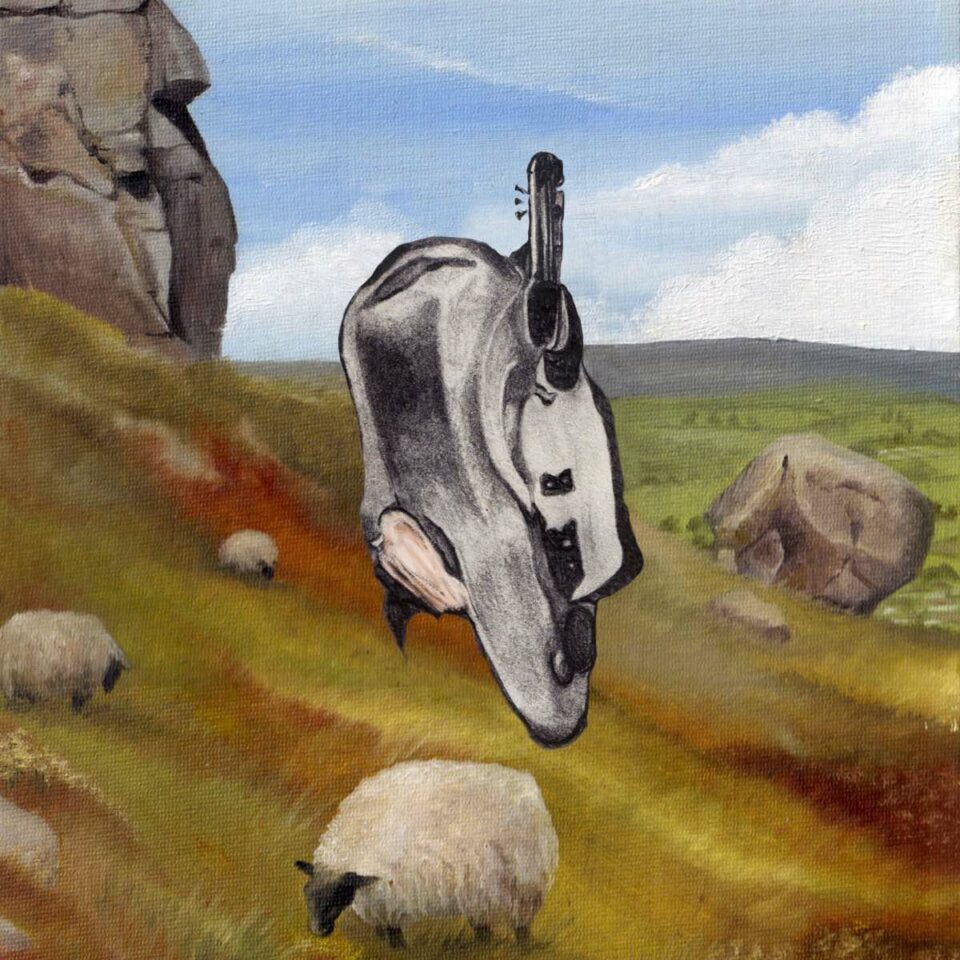
English Teacher, This Could Be Texas
It’s rare for a young band to have a clear vision for their debut album, but UK alt-rockers English Teacher beat the odds with style and audacity. This Could Be Texas slaloms cleverly from genre to genre as vocalist Lily Fontaine pontificates insecurities, inequality, and general British government incompetence. The group successfully melds post-punk to other genres that subvert classic assumptions about them, innovating within the lane of post-post-punk. The group’s big breakthrough came by way of their 2021 viral hit “R&B,” which was snuck into and reimagined for This Could Be Texas. The latest version of the track swaps the original’s rawness for an off-kilter feel with an added polish of Sonic Youth–like juju.
Fontaine’s languid vocal style, though, is totally relaxed and shines most when it becomes energetic and sardonic—as heard on “Not Everybody Gets to Go to Space,” with her cool, inconspicuous jab at Elon Musk. Still, English Teacher’s genre identity is multitudinous and can hardly be compared to one band. The title track traverses spoken word and prog rock while “Mastermind Specialism” meddles in acoustic folk. For the less adventurous, the experimental side of English Teacher may be too much. Even so, there are still enough conventional-leaning post-punk tracks to please even the pickiest of listeners. Yet what makes this album great is the group’s desire to be bold and daring. — Juan Gutierrez
Read our Breaking feature with English Teacher here.

Friko, Where we’ve been, Where we go from here
It’s gotta be great coming of age in the era of Online Discourse, where instead of older generations uniformly writing off breaking bands like The Strokes and Interpol as post-punk cosplayers we’re instead futilely debating the aughts-indie-rock influences of each up-and-coming band while they continue to crank out fusions of vocal warble far more unhinged than anything Conor Oberst achieved in his most emotive years and glossy guitar matching the pristine tones of Veckatimest, completely unbothered. Maybe this is just my age speaking, but whereas their peers feel much more intentional about paying homage to albums from 20 years ago (that in turn paid homage to albums from 20 years before that), Friko crash through the nine songs on their debut like they just wanna get out of the Discord server that’s dissecting their sound to death.
I think we Millennials do have a point, though, even if we’re missing it in the midst of heated debate—whereas the mid-’00s movement was comprised of uniquely compelling reinterpretations of solidified aesthetics that were fairly one-dimensional, Where we’ve been, Where we go from here feels like unintentionally shaking your iPod when the train unexpectedly jerks, resulting in a heavily grungified take on a twee-pop anthem pivoting to a weirdly endearing take on Jet in full-on Beatles mode. Perhaps the real beauty of it all is that you don’t even have to know what on Earth I’m talking about to enjoy it. — Mike LeSuer
Read our review of Where we’ve been, Where we go from here here.

Jessica Pratt, Here in the Pitch
Jessica Pratt’s music disarms you and then unsettles you. On her latest project, her performance gently takes us by the hand, blissfully leading us into the unknown—but her songwriting follows like a shadow reminding us of anxiety in the wake of uncertainty. On album closer “The Last Year,” Pratt makes the inescapable elongation of time sound like a goodnight kiss: “And wouldn’t you say the past’s no longer quite / As near as you’d like, and it’s gonna hurt you now.” The album’s fuzzy, warm recordings with Pratt’s high-pitched plush vocals recall the quilted melancholy of Buddy Holly and the Crickets, The Everly Brothers, or Astrud Gilberto. Here in the Pitch uses its soft, familiar sound to cushion untangleable truths.
The LA-based songwriter’s fourth album balances the shadows and cascades of sunlight through shifting curtains of thought. The project’s darker inspirations are subtler than her admiration for ’60s pop music. Drawing on Southern California’s seedy past, Pratt immersed herself in literature about Charles Manson and the dark forces in the history of Los Angeles. Notes of fear, paranoia, and longing are weeds that mix among Pratt’s lush bouquet, honing in on the surreal unease where memories, dreams, and nightmares become indistinguishable. “Some evil innocence, wild century can’t express / A gesture left in summer’s mind,” she sings on “By Hook or by Crook” over sighing percussive beads and acoustic guitar. “Autumn’s come to find / And it’s the end of the dreams again.” Her vocals float away like a lost balloon. — Margaret Farrell
Read our review of Here in the Pitch here.
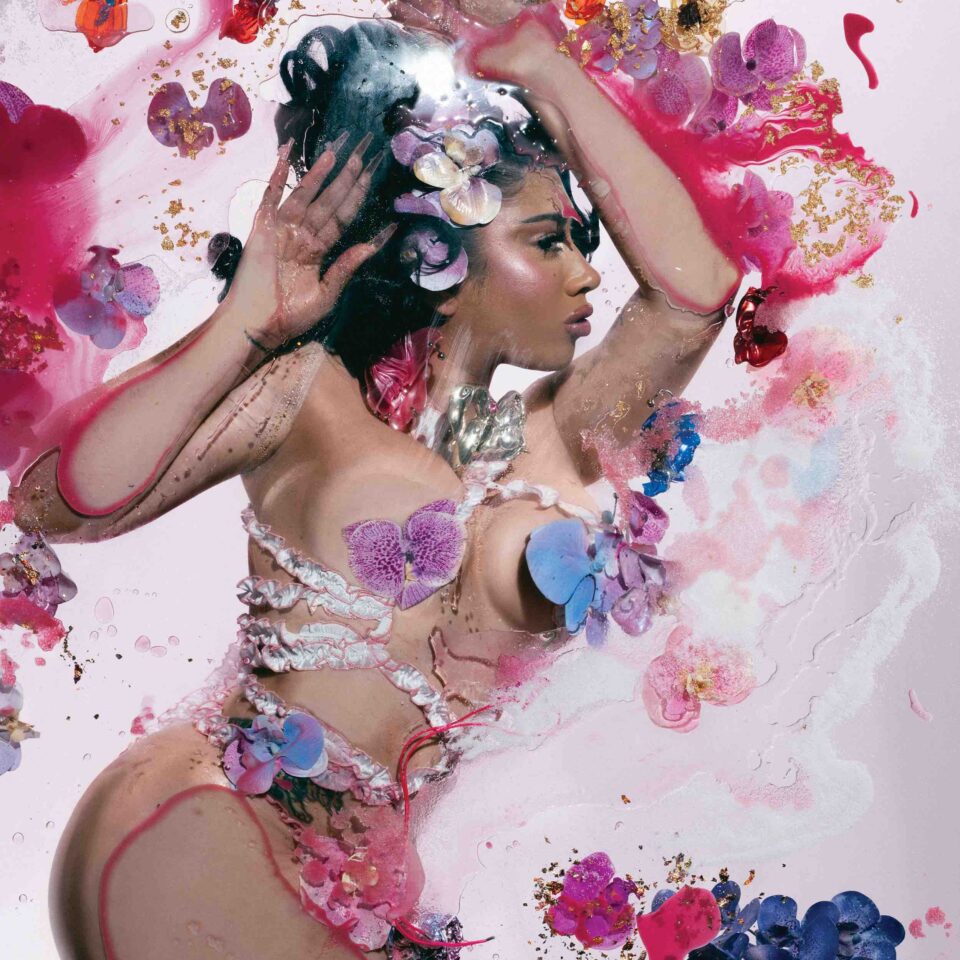
Kali Uchis, Orquídeas
“If you come around here, you’ll never want to leave,” coos Kali Uchis at the outset of her addictive fourth album, Orquídeas. It’s the perfect summary of her casual bravado, her imperious nonchalance. This time she’s really earned it, too: Named for the official flower of her native Colombia, Orquídeas finds Uchis’ considerable talents in full blossom. Over the course of her previous albums (some sung in English, others primarily in Spanish), she’s dabbled in both traditionalism and the cutting-edge, drawing equally from Colombian dance traditions and operatic balladry, vintage soul and contemporary pop. These varied strands are intricately woven throughout Orquídeas, where Uchis proves her bona fides as a hitmaker au courant, even enlisting (but never being eclipsed by) the starpower of Peso Pluma and Karol G.
There are soft-touch club tracks that recall ’90s and early-’00s dance icons—Aaliyah, Kylie, Ray of Light–era Madonna. And there are dynamic songs that summon the spirits of Uchis’ foremothers: romantic bolero-style weepers, funky blasts of salsa, even forays into the boisterous energy of old-school American hip-hop. Throughout, Uchis casually flips between Spanish and English, often within the span of a single sentence—another forceful show of her borderlessness. For non-Spanish speakers, she leaves plenty of English breadcrumbs to convey the spirit of her songs: “I don’t do frenemies”; “Those who don’t adore me, bore me”; “Watch out, she’ll walk you like a dog, woof woof!” She sounds like she can do just about anything she sets her mind to, and on Orquídeas, that’s quite a lot. — Josh Hurst
Read our review of Orquídeas here.

Khruangbin, A La Sala
The leveling up of Khruangbin with each release is significant. After four years of collaboration with the likes of Leon Bridges and Malian Songhai musician Vieux Farka Touré, the Texan trio hunkered down with their longtime engineer Steve Christensen in their hometown of Houston to crank out their follow-up to 2020’s Mordechai. They hit reset and went back to instrumentals only, while their fluid incorporation of global influences—from rock and blues to Afrobeats and Middle Eastern grooves—pours out as something akin to contemporary surf funk.
As moody as Khruangbin’s music already is, A La Sala is even more mellowed out, but with a heightened emotional pull. The musicianship, which was already stellar, has ramped up, but instead of showboating, the performance has become further nuanced. If there’s an underlying feeling to the record, it’s sensuality. Dreamy and balmy, the visceral “May Ninth” practically smells like sunscreen and feels like sand. The sexy shuffles of “Pon Pón” are irresistible, while the romantic strains of “A Love International” trigger warm, fuzzy feelings. Wherever Khrungbin wants to lead us, we’re ready to follow. — Lily Moayeri
Read our review of A La Sala here.
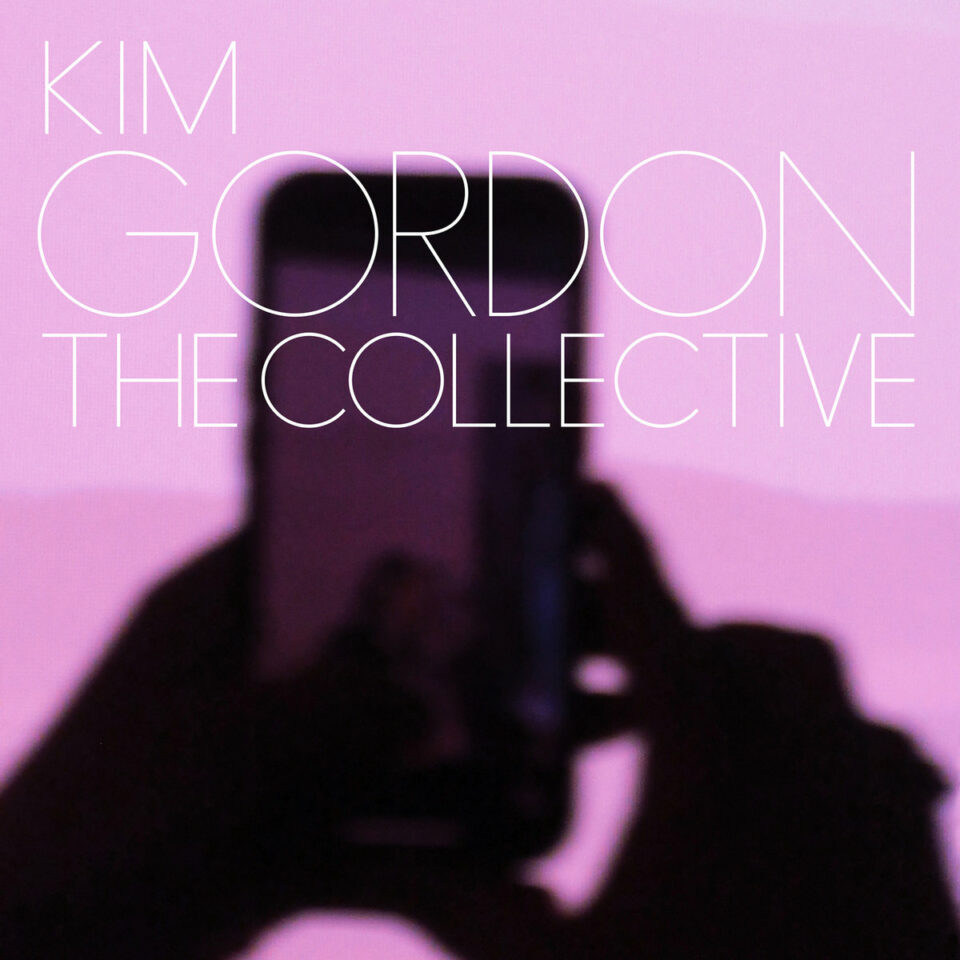
Kim Gordon, The Collective
Since the end of her longtime band Sonic Youth in 2011, Kim Gordon has pursued a path of unpredictability—first through the improvisational drones of her experimental guitar outfit Body/Head, and then with the release of her avant-garde pop solo debut No Home Record in 2019. Yet even given her background as an iconoclast, I still think it’s safe to say none of us expected her to release something like “Bye Bye,” the first single from her sophomore album The Collective. A hybrid of noise rock and industrial trap, the track sets squealing guitar against an 808 pattern one might expect to hear on a Playboi Carti album, with nigh-dadaist lyrics listing items being packed for a trip, sung in Gordon’s familiar deadpan: “Blue jeans, cardigan, purse, passport, pajamas, silk.”
Much like that disorienting four-minute teaser, The Collective is bizarre and brilliant, unraveling genres and feeding them through sheets of amorphous distortion. Building on the playful experimentation of her debut, Gordon goes darker and gets weirder while sharpening the songwriting, turning out social commentary via menacing din on “I’m a Man,” industrial shoegaze on “Tree House,” and dangerous levels of bass on “The Believers.” Yet through the squalls and squeals, pulses and throbs, Gordon’s effortlessly oblique beat poetry remains at the center, the adhesive keeping together the album’s myriad chaotic moments while branding it as a work wholly her own. It’s a masterpiece of abrasive absurdity, the kind of irreverent innovation that only someone as cool as Gordon can pull off. – Jeff Terich
Read our review of The Collective here.
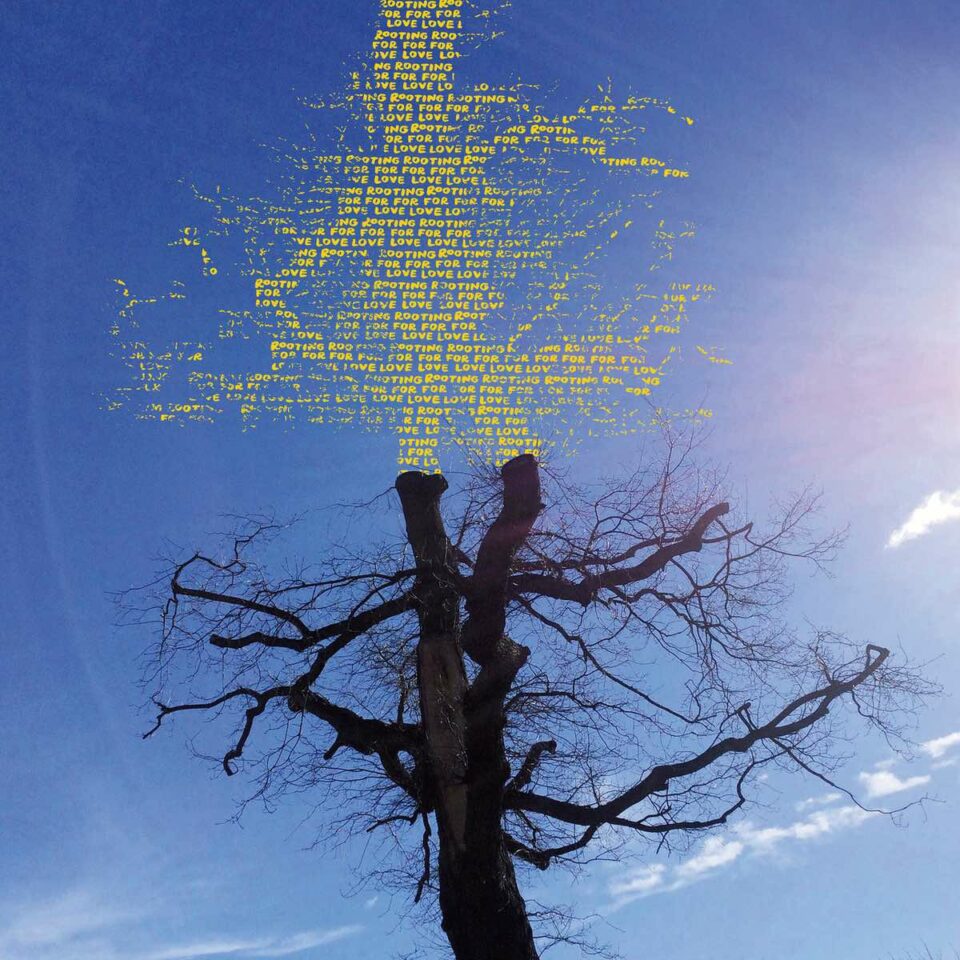
Laetitia Sadier, Rooting for Love
It’s natural to take prolific artists for granted (“I already have a dozen Stereolab albums at home,” I hear you cry). But Laetitia Sadier is different—someone who’s always fiddled with the levers, toyed with plenty of esoteric genres and instruments, and thus future-proofed herself. There’s no “return to form” or “boldly enters a new era” bullshit here. Rooting for Love is an album underpinned by Sadier’s iconic mirepoix—art, seminar, and dance—and you won’t be shocked that it sort of sounds like some of her work with Stereolab, Monade, Mombojó, or the four solo albums that preceded it (“New Moon” and 2010’s “One Million Year Trip” are even built around the same beautifully dissonant chord). But Rooting is very much a cohesive, standalone work—more shadowy and mysterious than The Trip, whose sunny escapism set the high watermark, and less focused on overarching rebukes of capitalism and more on the horrors and holistic remedies under its umbrella.
The disturbing recount of femicide on “Don’t Forget You’re Mine,” for example, is sobering, particularly as pleasant, jangly guitars and sultry strings juxtapose it. “The Inner Smile,” meanwhile, is a lighter counterpoint, a study in self-love (“Smile at your heart / Thank your heart, see twinkle”). Sadier’s voice has always been the moonlight leading us through the swirling storm, even when she tells us “I’m not fucking around / You’re halfway dead” during the album’s final seconds. It’s not only her voice on Rooting for Love, but an awesome, multi-gender choir. The layering, pulsing, and phasing techniques it utilizes show how Sadier continues to find exciting new applications for the harmonic choices she’s threaded through her career. — Hayden Merrick
Read our feature with Laetitia Sadier here.

The Last Dinner Party, Prelude to Ecstasy
It takes real audacity to open one’s debut album with a 96-second orchestral overture. But on the gauntlet-throwing Prelude to Ecstasy, The Last Dinner Party have done just that. It’s a fitting introduction for these witchy-woman Brontë heroines, who in 2023 swashbuckled their way onto the UK scene fully formed and festival-ready with their maximalist coquette-core, trailing vintage silks and velvets, pheromones and hormones in their wake. LDP simply don’t do subtlety. If Stefon from Saturday Night Live were writing this, it would go something like this: “London’s hottest Last Dinner Party has ev-er-y-thing: pomp, circumstance, guitar-goddess energy, Catholic guilt, feral desire, emotional violence, sing-along choruses about mindless [bleep]-ing, mandolins, keytars, liver…”
On the nonstop-erotic-cabaret that is their James Ford–produced debut, rock-operatic tortured poetess Abigail Morris, with her lusty Banshee wail, sounds like she’s delivering every florid, bodice-ripping lyric from a Victorian fainting couch, selling the sadomasochistic drama on nearly every song. And it’s all buoyed by the spiky, stadium-sized solos of art-rocking axewoman Emily Roberts, who—and this totally tracks—once played the Brian May role in a Queen tribute band. That influence is heard, of course, on bludgeoning, baroque ballads like “My Lady of Mercy” and “Caesar on a TV Screen”; comparisons to Kate Bush, Country Life–era Roxy Music, pretty much every era of Sparks, Ford’s productions for Florence and the Machine and Last Shadow Puppets, and, perhaps most accurately, a Gothic, Visitors-era ABBA also spring to the fevered brain. But Prelude ultimately sounds startlingly fresh and original, earning every column inch of its (at times backlash-generating) press hype. Hopefully it’s the prelude to a long and iconoclastic career. — Lyndsey Parker
Read our digital cover feature with The Last Dinner Party here.

Madi Diaz, Weird Faith
It’s becoming increasingly evident that we live in post-genre era where everything is accessible online all the time, everywhere. As such, local scenes don’t develop in the same way they used to, and music listeners aren’t so bothered about “belonging” to one circle in particular. That said, there’s still something of a divide between pop and quote-unquote serious music. And while artists like Billie Eilish and Olivia Rodrigo are helping to bridge the gap between popularity and acclaim, there’s still a stigma of sorts among these Serious Music Consumers if they listen to either of those artists instead of, say, Sonic Youth or the Yeah Yeah Yeahs.
To that extent, Madi Diaz is the perfect bridge between those two dichotomies—or the figure decimating said bridge. That’s because the Nashville-based musician has been personally selected by Harry Styles as one of his opening acts (and, subsequently, as one of his backing singers), but also writes songs that sound a universe away from those of the former One Direction member. Weird Faith is Diaz’s second full-length, and it demonstrates her sheer talent for writing raw, stripped-back, heart-wrenching songs that are the antithesis to modern pop music, yet which still somehow contain all of its hallmarks. “Everything Almost” and “Girlfriend” are perhaps the best examples on this record’s 12 songs, but they’re just the tip of an iceberg that—thanks to the incredible songwriting and bare-sleeved honesty of, say, “Get to Know Me” and “KFM”—contains some of the most profound, deep, and moving songs released thus far this year. — Mischa Pearlman
Read our review of Weird Faith here.

Mannequin Pussy, I Got Heaven
For so long—too long—people have been separating the personal from the political. And fair enough. There’s often too much going on in someone’s life to fully commit to addressing the systems of oppression that govern our capitalistic hellscape. The irony is that the two actually go (and always have) hand in hand. One drives the other and the other drives the one. That’s a connection that I Got Heaven, the John Congleton–produced fourth album from Philadelphia four-piece Mannequin Pussy, has absolutely nailed. Because while its 10 sumptuous, incredibly un-punk punk songs are both emotionally tender and overtly sexual, they also exist within the context of the systems the band (fronted by the erudite and articulate Marisa Dabice) have always been battling against.
While they’re often cast as a feminist group, it’s important to note the intersectionality of their beliefs—their music doesn’t just take on the patriarchy, but the capitalist, imperialist, racist, and religious systems that keep it place. They do so here again, and with a few exceptions (namely the belligerent punk explosion of “OK? OK! OK? OK!” and the stunning, confrontational opening title track, replete with the killer line “And what if Jesus himself ate my fucking snatch?”), with much more emotional vulnerability. Just listen to the catchy strains of “Sometimes,” or the gentle closer “Split Me Open,” which means exactly what you probably think it does. It all lends itself to Mannequin Pussy’s finest effort to date, and one of the most important albums of the year. — Mischa Pearlman
Read our review of I Got Heaven here.
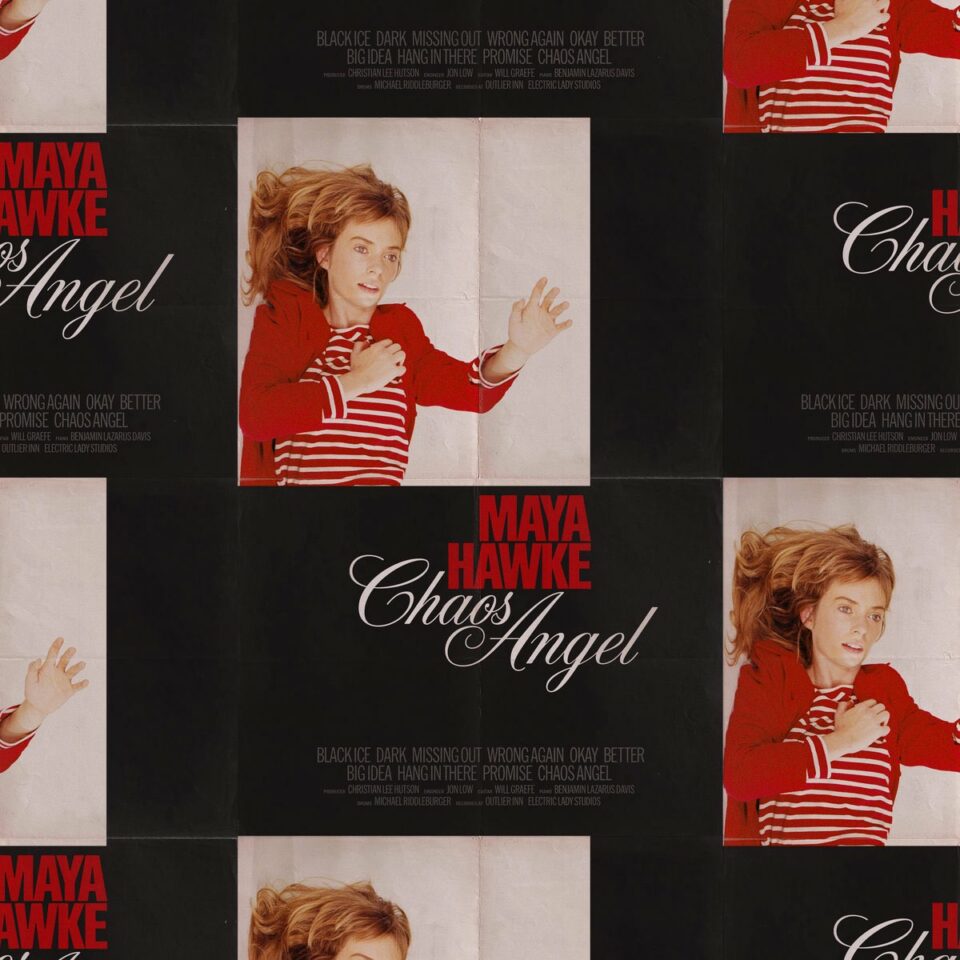
Maya Hawke, Chaos Angel
Calling what Maya Hawke does as a vocalist “actorly” is no insult to the singer and songwriter. Instead, that comment is a welcome response to Hawke in consideration of her thespian day job, and the whisper-to-scream verbal tics and nuances she brings to her newest album, Chaos Angel. Yet along with the various voices she lends to songs such as “Black Ice” and “Wrong Again,” Hawke has put in the work as a musician, producer, and curator so as to expand the earnest, odd folksiness that marked her previous albums Moss and Blush.
Curation is truly important to Chaos Angel. To go with her twisted true stories and mantra-like lyrics (see “Okay” for the latter), Hawke has collected an expressionist group of collaborators—Norah Jones’ main man Jesse Harris, boygenius’ best male teammate Christian Lee Hutson, Joan as Police Woman’s Benjamin Lazar Davis, multi-instrumentalist Will Graefe—to aid her in the creation of an expansive, open-ended sonic/songwriting palette broader than that of her past albums, but without moving too fast or too far from the styles that made us fall in love with her in the first place. While a song such as the title track lifts and separates from its tiny, humble piano beginning into something grand and orchestral, the minor-key epic of “Missing Out” features fuzz tones and glitch-hop FX to create its enveloping, spiderweb-like ambience. Plus, every melody on Chaos Angel is a winningly contagious one that sucks you into Hawke’s vocal vortex—actorly, intimately, and beyond. — A.D. Amorosi
Read our digital cover feature with Maya Hawke here.
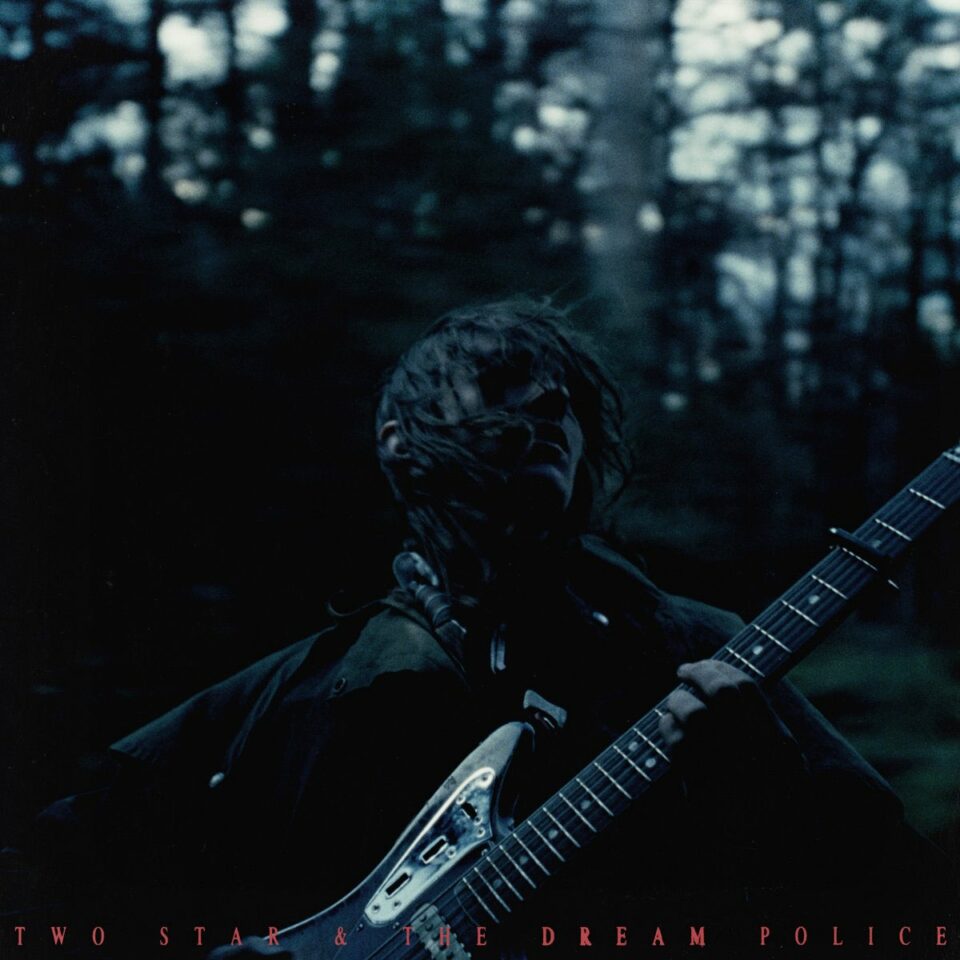
Mk.gee, Two Star & the Dream Police
Mk.gee is one of those artists who was always percolating just beneath the surface. A bevy of independent releases and a run as Dijon’s right-hand accomplice put him on the radar of real heads, and with his subtly epic debut album Two Star & the Dream Police, he officially carved a path to stardom (or at least the mid-tier indie accomplishment of touring without losing money). Describing the album is sort of like trying to explain why the first sip of coffee in the morning is the best. There’s not a ton of science behind it, but it’s a feeling that’s objectively true and impossible to ignore. The songs are slippery, functioning as perfect background music to do almost anything to while also demanding exacting attention.
There are little things here I’m still catching on my 200th listen. Mk.gee has become one of our great songwriters, with an ability to make his pain feel universal, and our pain like the most important thing in the world. This isn’t pathos for pathos’ sake, though—the music is urgent. The melodies stay with you for days, but if you don’t grab ’em, they dissipate like quicksand. The album slaps you in the face and then dances off into the sunset, leaving you to wonder what the hell just happened. It doesn’t even feel important to single out any individual song while writing this impassioned blurb. That’s because this is an album, baby. We’re back. Each track is important in and of itself and to the greater whole. — Will Schube

Nia Archives, Silence Is Loud
The debut album from West Yorkshire musician Nia Archives confirms that you can find solace in turbulence. “I’ve always loved the chaos of jungle,” the producer/singer-songwriter revealed regarding her inclination for quick-paced electronic soundbeds. As one of the revitalizing forces behind the resurgence of the ’90s subgenre, Archives constructs a vast skyline of relentless, indestructible breakbeats, spires of syncopation, and towering satin vocals. This vibrant backdrop helps her make peace with the volume of pain. “You're the only thing keeping me sound / And without you, the silence is loud,” she sings on the title track. Her voice reverberates amongst a cartoonish beat that could soundtrack the subject of a racing video game hurtling toward a mental breakdown.
Most of Silence Is Loud feels like a defense mechanism: Keep moving so as to not feel the painful weight of the present moment. Although the record tackles subjects like isolation and family dysfunction, it also embodies both freewheeling catharsis and an embracing sense of comfort. Throughout, Archives expands the definition of the genre she’s been heavily associated with, morphing jungle’s euphoria with gloomy indie rock (“Blind Devotion”) and angsty pop-punk (“Crowded Roomz”). Toward the end, she presents a stripped-down reprise of the title track. It’s as deeply moving as her signature fierce crying-in-the-club antics. — Margaret Farrell
Read our review of Silence Is Loud here.
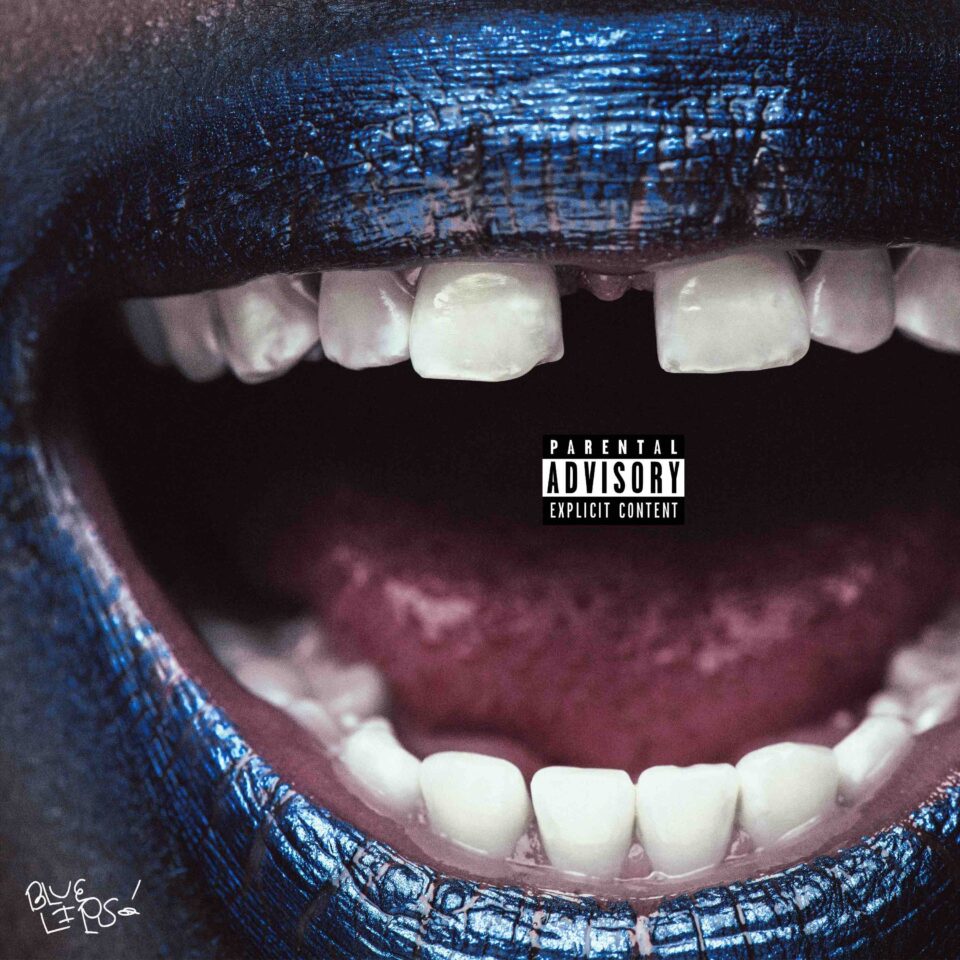
ScHoolboy Q, Blue Lips
With his new album, LA rapper ScHoolboy Q returned to his experimental West Coast gangsta-rap roots established when he first emerged from Kendrick Lamar’s Black Hippy group in the early 2010s. Each successive release has been a significant turn for Q, and Blue Lips is no different. It navigates the private, public, and outsized personas fit for an established rap artist following in the footsteps of his West Coast forebears. He gets cinematic with his confessionals on “Blueslides” and then scorch the earth on the three-act “oHio” where, abetted by Freddie Gibbs, he coils jazz, funk, and rap styles around tales of an irritable spouse, credit card braggadocio, and getting head in Paris. On the very next track he turns around and repeats a ridiculous hook that consists of the double-holy sextet of “Marijuana, hydro, pussy, hoe, ass, titties.” It’s stylistic whiplash, but he maintains stability across a wild 18 songs.
The production here feels like the equivalent of a weekend brownout where your vision blurs and you’re passively game for just about anything. The adept sequencing also helps, as it did on 2016’s Blank Face LP. Q never leans into one style, as the atmospheric and smoky “Nunu,” for example, sits alongside the synthy strut of “Back n Love.” Songs like the Rico Nasty–featuring “Pop” bring the aggression and grit of the streets, whereas later in the album he incorporates samples of jazzy soul (“Lost Times”) and even a psychedelic sample of Pat Johnson’s “Love Brought You Here” for “Germany 86.” He expands the range of Cali rap without sounding like a tired and bloated mess, and that’s damn impressive. ScHoolboy Q can roll up his lavish lifestyle into a singular song, but he’s also not afraid to burn that up for the high of a series of well-plotted album plot twists that ratchet up dopamine levels. — Kyle Lemmon
Read our review of Blue Lips here.
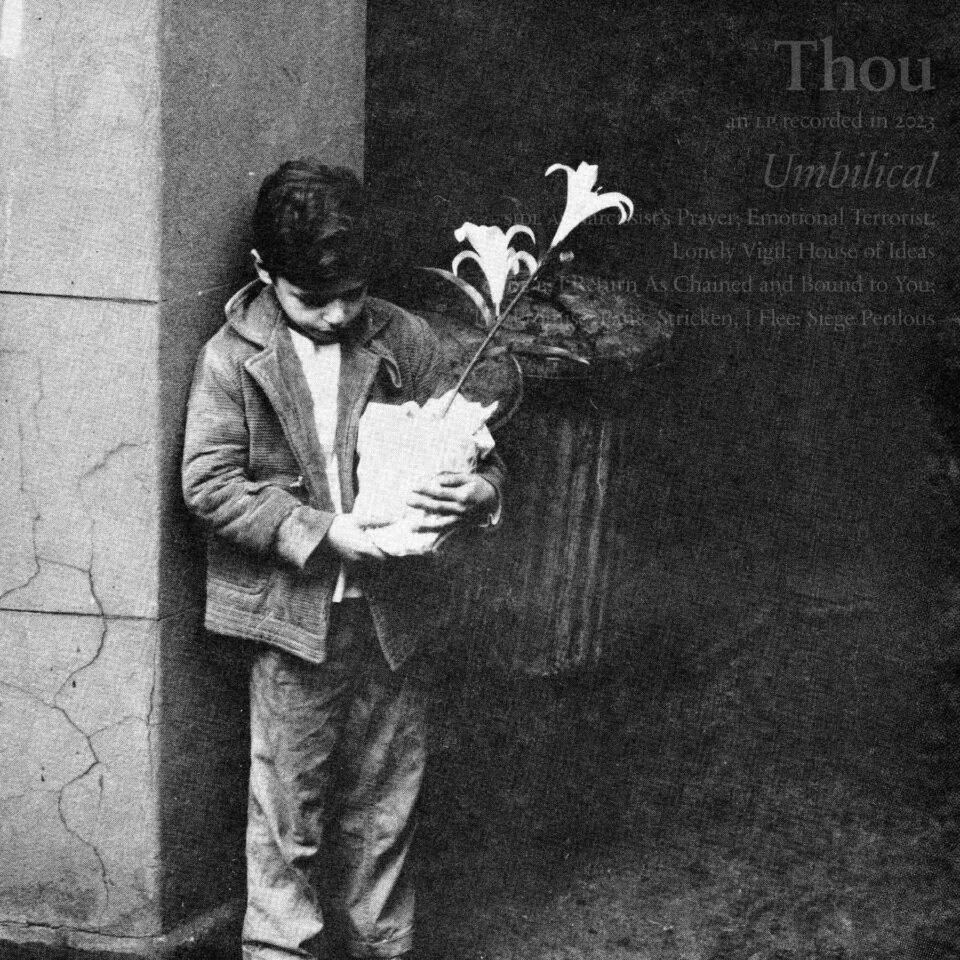
Thou, Umbilical
Thou are the rare metal band that not only boast a broad range of influences, but also make it a significant portion of the project’s persona that they don’t give a shit what you think about that fact. They’re not shy about their adoration of Eyehategod and Nirvana, releasing music that often vaguely feels like some form of shitposting in its blatant homage—or sacrificial ritual—to the forefathers of sludge and grunge, respectively, rather than giving their audience a conventional LP. They notably also Euro-stepped through three nearly incompatible genres of music the summer before releasing their last slab of non-collaborative original material: 2018’s 75-minute behemoth of Trump-era doom, Magus.
Which is to say that at this point, the 180 they took with its follow-up could very much be expected. Umbilical has a bit of a precedent with the band’s uncharacteristically black-metal take on Zola Jesus’ “Night” a few years back, but otherwise the relatively quick pacing and conventional song lengths featured on the new record feel like peeling off all those winter layers after heavy snowfall turns to sleet. In place of the snail’s-pace dirges mounting over the course of 10 minutes is a completely reasonable runtime borrowing from Chat Pile’s playbook of adapting bass-forward sludge to some eerie form of bayou-wading pop music, albeit with Bryan Funck’s constant terrorizer vocals subbing in for the madman narration of Raygun Busch. If Magus was the two-handed dunk after two-stepping to the hole, Umbilical feels like Thou returning from a long off-season as an offensive threat from outside the key. — Mike LeSuer
Read our review of Umbilical here.
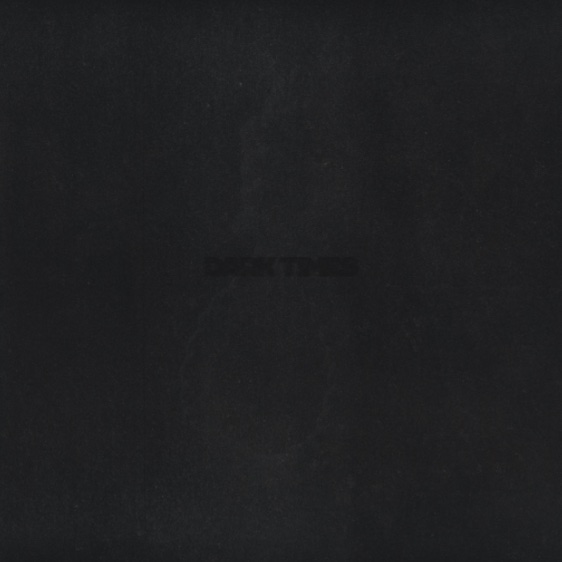
Vince Staples, Dark Times
In the years since his summer-ready 2018 record FM!, Vince Staples’ music has plunged ever deeper in the opposite direction, trading in the morbid undertones of that album’s sunny sounds for a more prominent weariness. The trajectory comes to a head on the Long Beach rapper’s appropriately named sixth album Dark Times, marked by an enveloping mournfulness at the costs and sacrifices of his continued ascendence.
Staples’ lyrics have rarely been tighter or more thematically cohesive, even when his voice sounds heavy with fatigue recounting messy beefs and friendship fallouts on “Shame on the Devil,” or the violent financial pressures of hustle culture on “Little Homies.” In the brief spells where the beats land like dark clouds parting (such as on the standout West Coast throwback banger “Étouffée,” or the sing-song interstitial track “Justin”), Staples’ words linger on the shadows they cast—deception, aggressive demands on his creative direction, and losing “a hundred friends” to gang violence. Yet all the grimness emerges with the utmost clarity of purpose; on closer “Why Won’t the Sun Come Out?” Santigold muses on the nature of creativity as interpersonal connection, an extension of the “dark and beautiful and light at the same time” on “the path that humans are meant to be” following. Through laying bare all that darkness, a course to light can be unearthed. — Natalie Marlin
Read our review of Dark Times here.
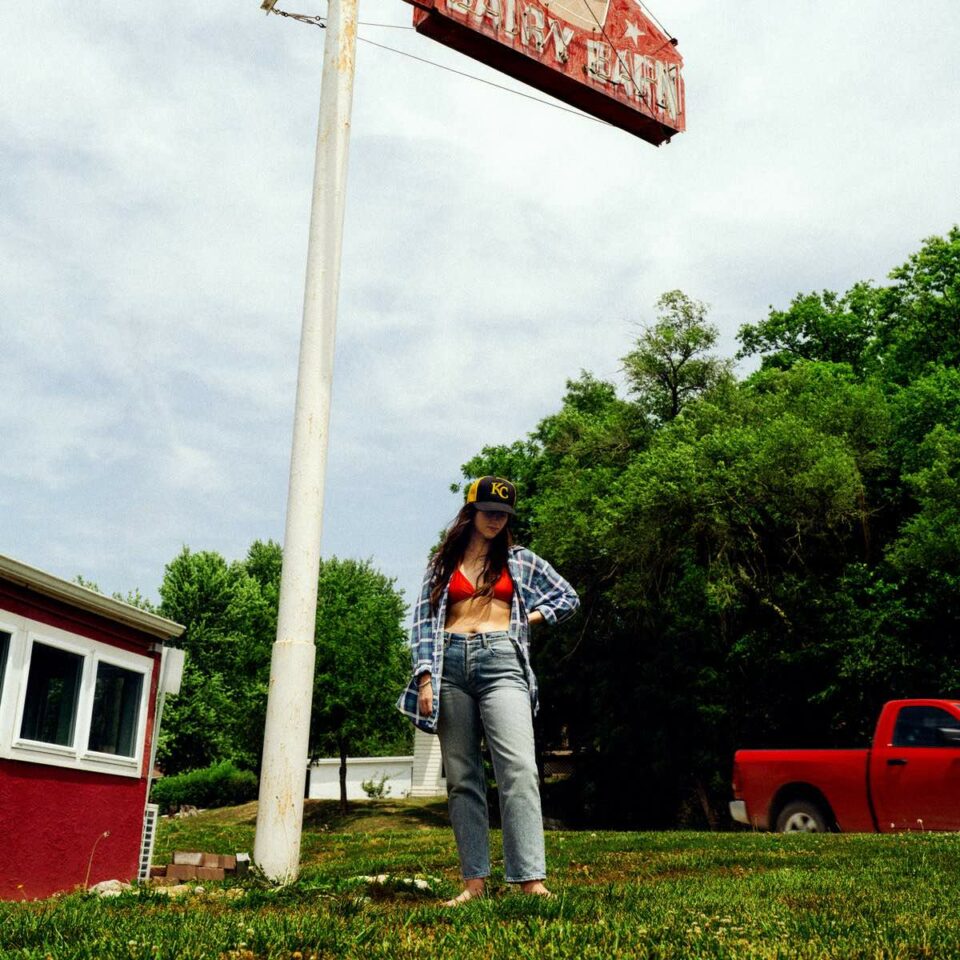
Waxahatchee, Tigers Blood
Following 2020’s Saint Cloud, which dove deep into themes of recovery and codependency, and which finally allowed her Americana influences (not to mention her Alabama accent) to shine, Katie Crutchfield’s sixth studio album Tigers Blood revels in the fruits of honesty. Even though it came out in mid-January, lead single “Right Back to It” nestled into the upper echelon of this year’s best songs with the easy candor of a summer bonfire. The collaboration with Wednesday’s MJ Lenderman finds Crutchfield analyzing her own anxieties and self-destructive instincts before coming back to the people she loves to recenter.
On the flip side is “Evil Spawn,” a dizzying track about learning how much better you deserve, and “Bored,” which funnels a real-life friend breakup into a righteous country-rock kiss-off. With Brad Cook returning as producer and a new backing band that includes Lenderman, Phil Cook, and Spencer Tweedy, Crutchfield turns these stones over in a way that’s frank but still feels light, celebrating the kind of love that embraces you fully and refusing to accept anything less. It’s an assured, unruly form of reflection that often evokes her hero Lucinda Williams: the picking pattern on “Crowbar” nods to “Passionate Kisses,” while “The Wolves” centers the straightforward, frustrated couplet “I can’t talk to God / I can’t light it up.” Sure, we may not be able to speak directly to the divine—but through these songs, it’s easy to find communion. — Annie Parnell
Read our review of Tigers Blood here.







